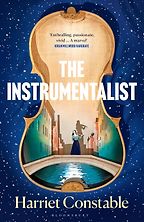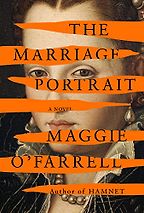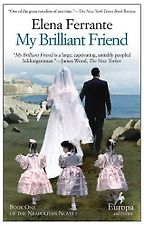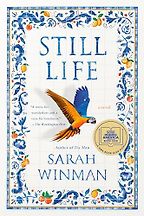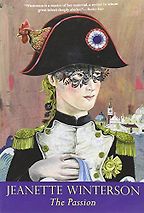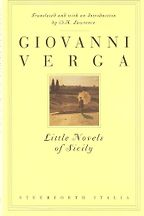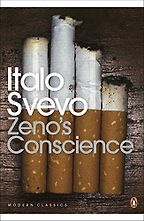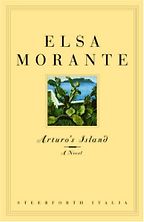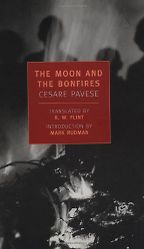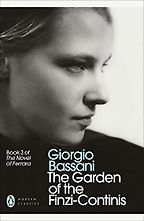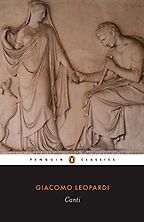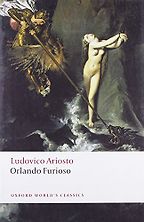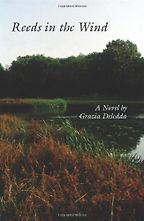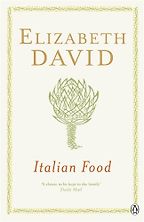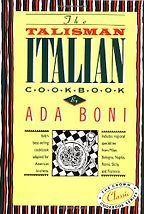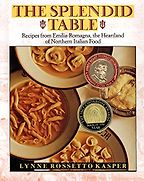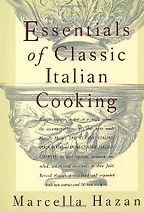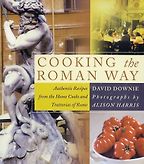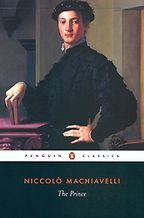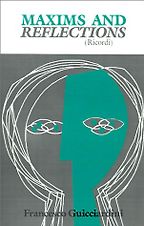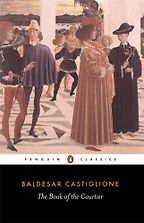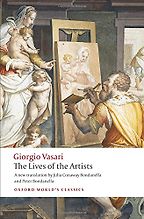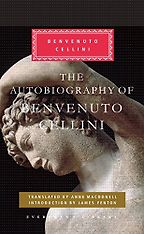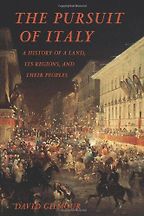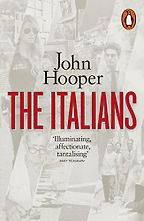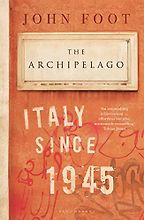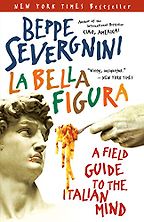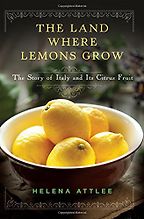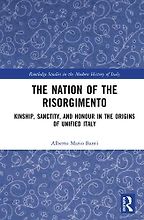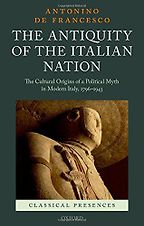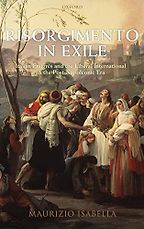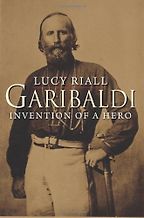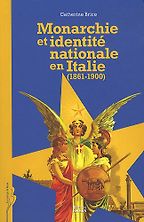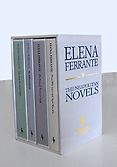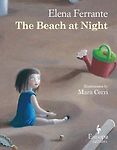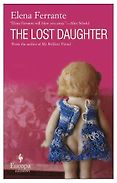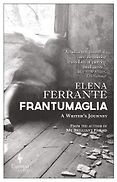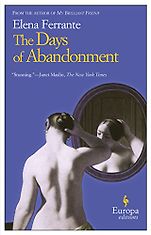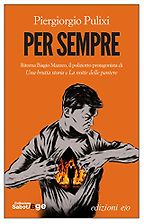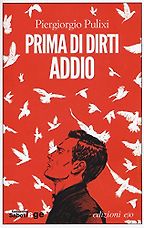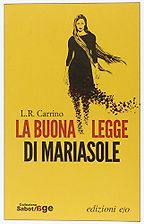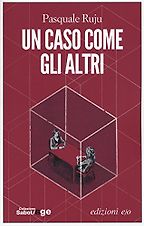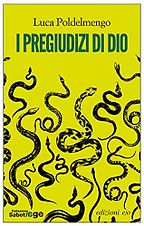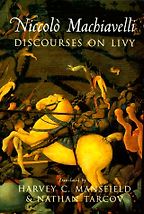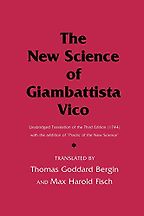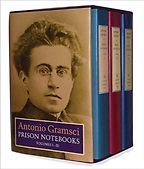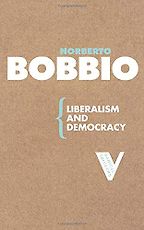Italy Books
Last updated: June 22, 2025
The best books on Italy: we've asked novelists, academics and one chef to recommend which books to read to learn more about Italy, its food, its culture, its art and its history.
Books on notable Italians include Julius Caesar, Marco Polo, Isabella de’ Medici, Christopher Columbus, Galileo, Dante, Leonardo da Vinci, Verdi, and Elena Ferrante.
Italian authors frequently recommended on Five Books include: Natalia Ginzburg, Umberto Eco and Primo Levi.
We also have sections on some of the most popular Italian cities; Venice and Ancient Rome.
Due to Italy's enviable geographic position, it's historically been home to myriad peoples and cultures that have all contributed to its culture and literature.
Historical Novels Set in Italy, recommended by Tracy Chevalier
Historical novels are at their most compelling when they get the details of daily life in the past right, argues bestselling author Tracy Chevalier. She picks five of her favorite historical novels set in Italy, from 16th-century Florence to 1950s Naples, with a couple of stops in Venice, where her own latest novel, The Glassmaker, is set.
The Best Italian Novels, recommended by Tim Parks
In the decades following Italian unification, its authors started writing in the new common language: Italian. Italy-based novelist Tim Parks introduces us to some of the best novels by some of Italy’s greatest writers.
The Best Italian Literature, recommended by Dacia Maraini
One of Italy’s greatest living authors, Dacia Maraini, nominates her choices for the best works of Italian literature.
The best books on Italian Food, recommended by Ruth Rogers
A culinary tour of Italian food, with co-founder of the acclaimed River Café restaurant Ruth Rogers. She tells us about the books that have inspired her, including the one she asks all her chefs to read!
The Best Italian Renaissance Books, recommended by Kenneth Bartlett
If you’re going to look at the past, you have to understand the people who were living there and see the world through their eyes, says historian and Renaissance specialist Kenneth Bartlett. He picks the best books written during the Italian Renaissance.
Books on Italy, Italian Politics & History, recommended by Alan Rhode
“You may have the universe, if I may have Italy,” goes the Verdi opera. Italy has had a profound influence on everything from art and food to religion and organized crime. Anglo-Italian journalist Alan Rhode recommends books to better understand Italian politics and history—and the Italians themselves.
-

1
The Nation of the Risorgimento: Kinship, Sanctity and Honour in the Origins of Unified Italy
by Alberto Mario Banti -

2
The Antiquity of the Italian Nation: The Cultural Origins of Political Myth in Modern Italy
by Antonino De Francisco -

3
Risorgimento in Exile: Italian Emigrés and the Liberal International in the Post-Napoleonic Era
by Maurizio Isabella -

4
Garibaldi: Invention of a Hero
by Lucy Riall -

5
Monarchie et Identité Nationale en Italie (1861-1900)
by Catherine Brice
The best books on Italy’s Risorgimento, recommended by Carlotta Ferrara degli Uberti
The best books on Italy’s Risorgimento, recommended by Carlotta Ferrara degli Uberti
Italian unification was one of the great political dramas of 19th century Europe, transforming a patchwork of territories speaking different languages into the nation-state of Italy. Here, historian Carlotta Ferrara degli Uberti discusses the people and ideas that brought it about and how its disputed legacy continues to impact Italy today.
The Best Elena Ferrante Books, recommended by Sarah Chihaya and Merve Emre
From her early novellas to the Neapolitan quartet, the elusive Elena Ferrante has achieved deserved superstar status for the compulsively readable, addictive quality of her writing. Two of the authors of The Ferrante Letters, Sarah Chihaya and Merve Emre, introduce us to Ferrante and recommend what to read next after My Brilliant Friend.
The Best Italian Crime Fiction, recommended by Massimo Carlotto
Journalists are no longer able to properly investigate organised crime in modern Italy — leaving it to crime fiction writers to pick up the slack, says the acclaimed Italian novelist, Massimo Carlotto. Here he chooses five noir novels that explore the reality of Italian corruption in highly original ways.
-

1
Discourses on Livy
by Niccolo Machiavelli, trans. Harvey Mansfield and Nathan Tarcov -

2
The New Science of Giambattista Vico: Unabridged Translation of the Third Edition (1744)
by Giambattista Vico, trans. Max Harold Fisch and Thomas Goddard Bergin -

3
The History of European Liberalism
by Guido De Ruggiero, trans. R. G. Collingwood -

4
Prison Notebooks
by Antonio Gramsci, trans. Joseph A. Buttigieg and Antonio Callari -

5
Liberalism and Democracy
by Norberto Bobbio, trans. Martin Ryle and Kate Soper
The best books on Italian Political Philosophy, recommended by Guglielmo Verdirame
The best books on Italian Political Philosophy, recommended by Guglielmo Verdirame
Italy has a rich tradition of political philosophy, producing a number of thinkers with both practical experience and a cosmopolitan outlook. Here Guglielmo Verdirame, Professor of International Law at King’s College London, talks us through the five most important Italian political philosophers, and the best books to read to understand their work.
